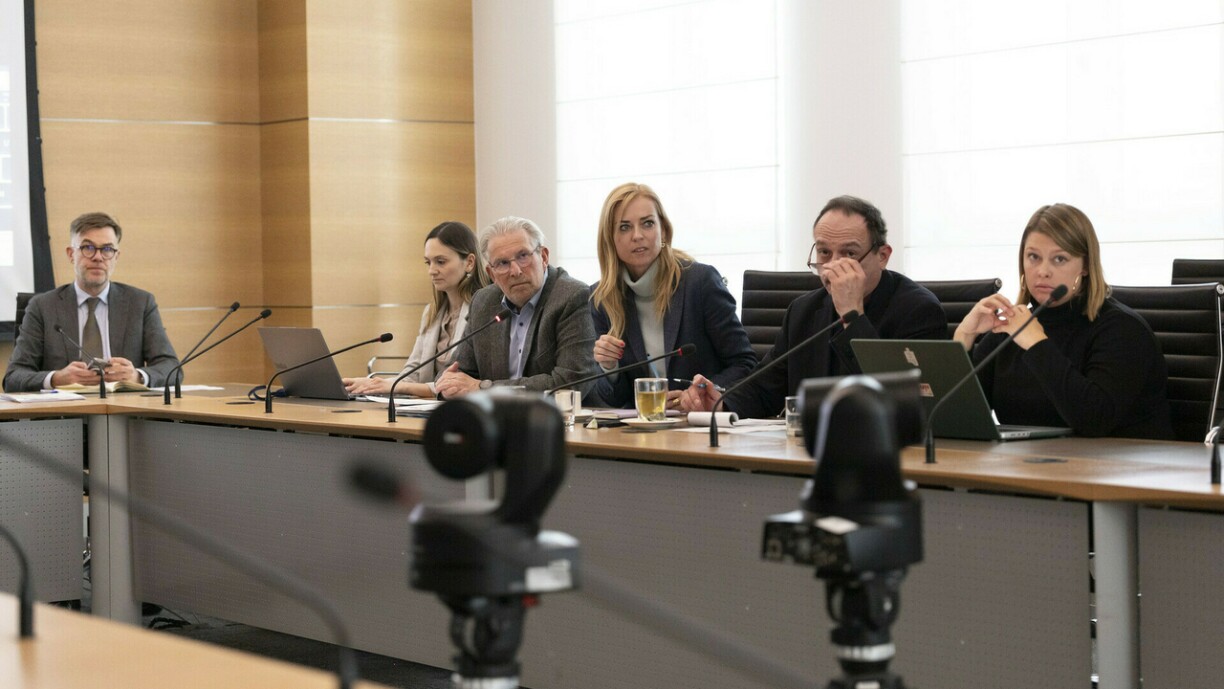
On Monday, the special parliamentary committee on the Caritas scandal met with representatives from the consultancy firm PricewaterhouseCoopers (PwC). During the session, MPs also unanimously elected their third committee president in just a few months.
MP Djuna Bernard of the Green Party (Déi Gréng) reported that PwC representatives acknowledged their role in managing the fallout from the fraud scandal involving Caritas. However, they provided limited additional information, which Bernard described as “understandable.” The representatives confirmed that PwC had taken over daily operations at Caritas after its management went on sick leave, a move Bernard likened to “keeping the ship afloat”. She also noted that PwC appeared to have maintained contact with the follow-up committee, which included civil servants. When questioned about the firm’s involvement in establishing the new organisation Help on the Ground (HUT), Bernard stated that PwC representatives “are hiding behind technicalities”.
MPs learned that Caritas itself had hired PwC, though MP Tom Weidig of the Alternative Democratic Reform Party (ADR) raised concerns about the timing of the hiring and the fees paid to the consultancy firm. Weidig found it “a little bit strange” that Caritas, which was on the brink of bankruptcy following the scandal, could afford PwC’s services. He criticised the firm for refusing to clarify how it ensured Caritas had the funds to pay for its services.
MP Carole Hartmann of the Democratic Party (DP) highlighted that PwC worked “very closely” with the Ministry of Education to prevent staff in international cooperation roles– w ho were not transferred to HUT – from becoming unemployed. Hartmann noted that this collaboration helped several employees find new opportunities. Separately, PwC expressed its view that the 2023 law on non-profits provides a clear legal framework but suggested that governance within associations could still be improved.
MP Taina Bofferding of the Luxembourg Socialist Workers’ Party (LSAP) stressed that lawmakers ‘of course’ did not comply with PwC’s request to submit questions in advance or limit follow-up inquiries. Bofferding, who serves as rapporteur of the Caritas special committee and is also the head of the LSAP parliamentary group, raised concerns about who ultimately held decision-making power in the matter.
This sentiment was shared by MP Marc Baum of the Left Party (Déi Lénk). He highlighted conflicting accounts: “The Prime Minister claims Caritas made all the decisions. The former president of Caritas states that PwC took the lead. And now PwC argues that it was actually the Crisis Committee.”
Bofferding reiterated the importance of finally engaging directly with Caritas representatives to clarify these discrepancies. However, no date has been set for such a meeting. She noted that discussions with PwC confirmed one point: saving Caritas was not considered viable.
In other developments, MP Charel Weiler of the Christian Social People’s Party (CSV) was unanimously elected as the new president of the special committee – the third in just a few months.
Weiler assured members that he has no conflict of interest, despite being a lawyer like his predecessors, Laurent Zeimet and Stéphanie Weydert. Both Zeimet and Weydert resigned due to current or previous associations with law firms involved in the Caritas case. However, Weiler explained that he has not practised law since late 2022 and is no longer registered with the bar association. After reflecting on potential conflicts of interest, he concluded that none exist.
While respecting the previous leadership’s decisions, Weiler expressed a desire to focus on moving forward and ensuring the committee progresses swiftly with its work. It remains undecided who will replace Weydert within the committee. The group aims to complete its investigation by April.